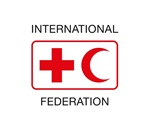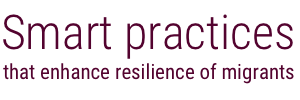Guides provide clear and accessible information on the rights and responsibilities of domestic migrant workers and their employers. They are intended to reduce workers’ vulnerability to abusive relationships.
ILO’s Global Action Programme on Migrant Domestic Workers and their Families (GAP-MDW) has developed an information guide for Paraguayan domestic workers in Argentina. The guide provides general information on Argentina; pre-departure advice; and information on migration legislation as well as on domestic workers’ labour rights in Argentina. The booklet provides a list of contacts, including consulates and civil society organisations. It is estimated that around 100,000 Paraguayan domestic workers are currently in Argentina. The Pasaporte Informativo was produced in collaboration with UN Women, the International Domestic Workers Federation (IDWF), the Office of the High Commissioner for Human Rights (OHCHR) and the International Trade Union Confederation (ITUC). The Argentinian Domestic Workers Union (UPACP) assumed responsibility for administration and for updating the guide. A similar booklet has been created for the Ukraine-Poland migration corridor and GAP-MDW is currently preparing an analogous tool for domestic workers arriving in South Africa from Lesotho and Zimbabwe. An app was developed for downloading onto smart phones, which provides the same information as the booklet.
Similar information guides exist in Lebanon, where 60,000 copies of an ILO-produced guide have been distributed. The booklet is also available in audio format, and a web portal has been developed to allow easy access to information. Similarly, the ILO has developed ‘Know your rights!’ booklets for migrant domestic workers in Italy and Spain.
6,000 copies have been distributed in Paraguay and Argentina. An electronic version is also available on the institutional web pages of project partners and domestic workers’ organisations.
Design. [P1] Focuses on the health needs and vulnerabilities of labour migrants. [P3] Recognizes the rights of labour migrants.
- Reaching out to migrant domestic workers.
- Maintaining updated information.
- Ensuring sustainability after the end of the project.
- Develop tools in collaboration with beneficiaries. (This tool was prepared at the request of migrant domestic workers in collaboration with their organizations.)
- Adapt solutions to the preferences of beneficiaries: wide use of smart phones and social media by migrant domestic workers led to development of an app.
- It is important to have clear roles and responsibilities for the administration and update of the guide, thus guaranteeing its sustainability.
Smart practices
Smart practices report and database survey
About the report
People migrate in pursuit of a better life for themselves and their families. As described in the International Federation of Red Cross and Red Crescent Societies’ (IFRC) Policy on Migration, “migrants are persons who leave or flee their habitual residence to go to new places – usually abroad – to seek opportunities or safer and better prospects.
Read more
About the International Federation

